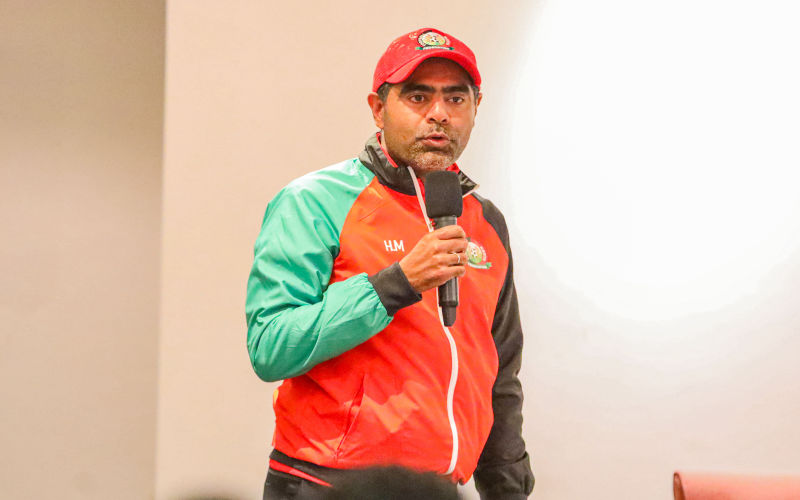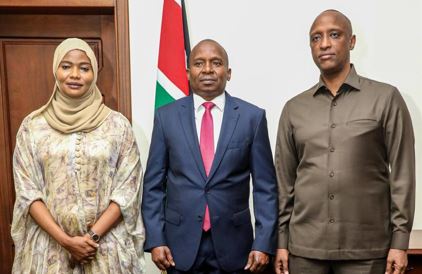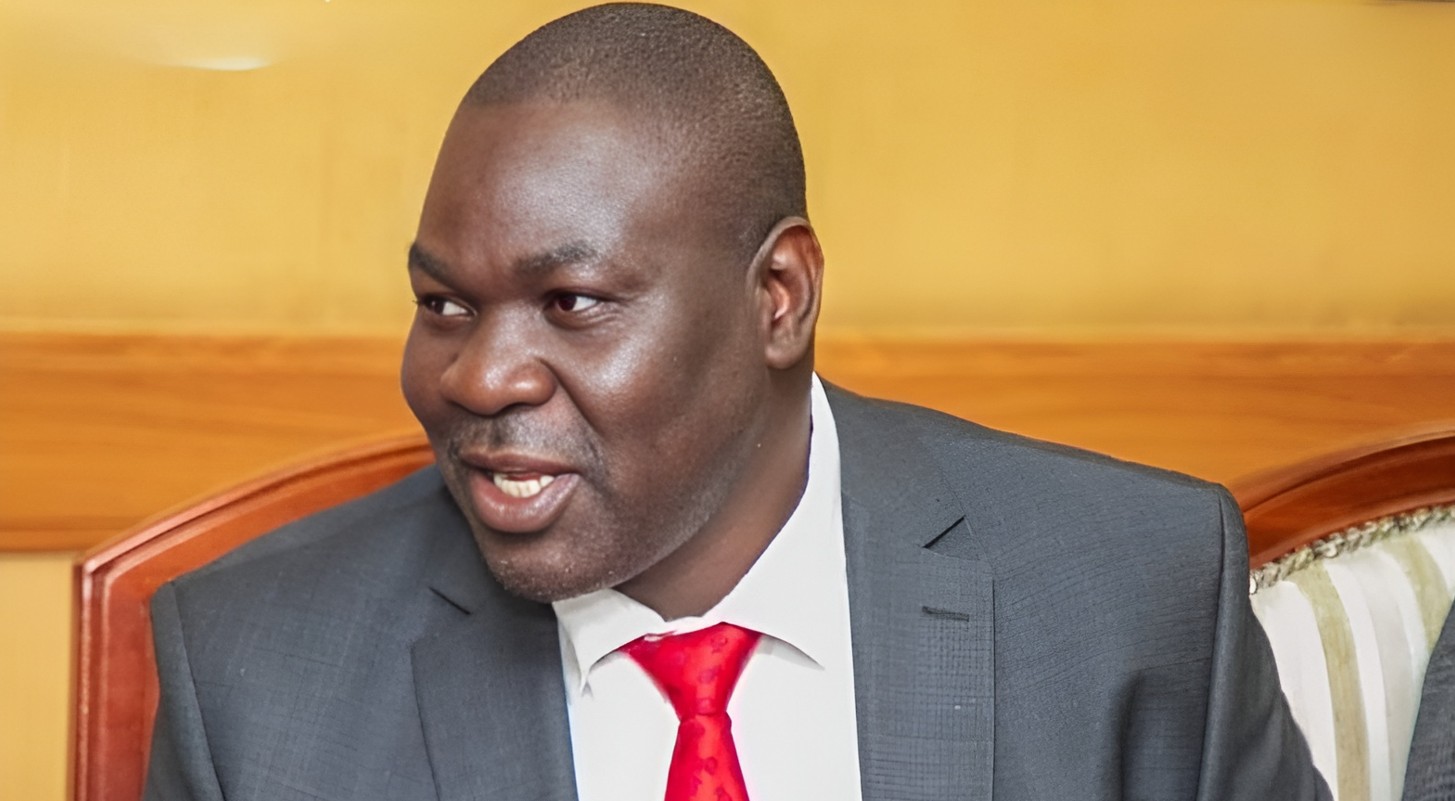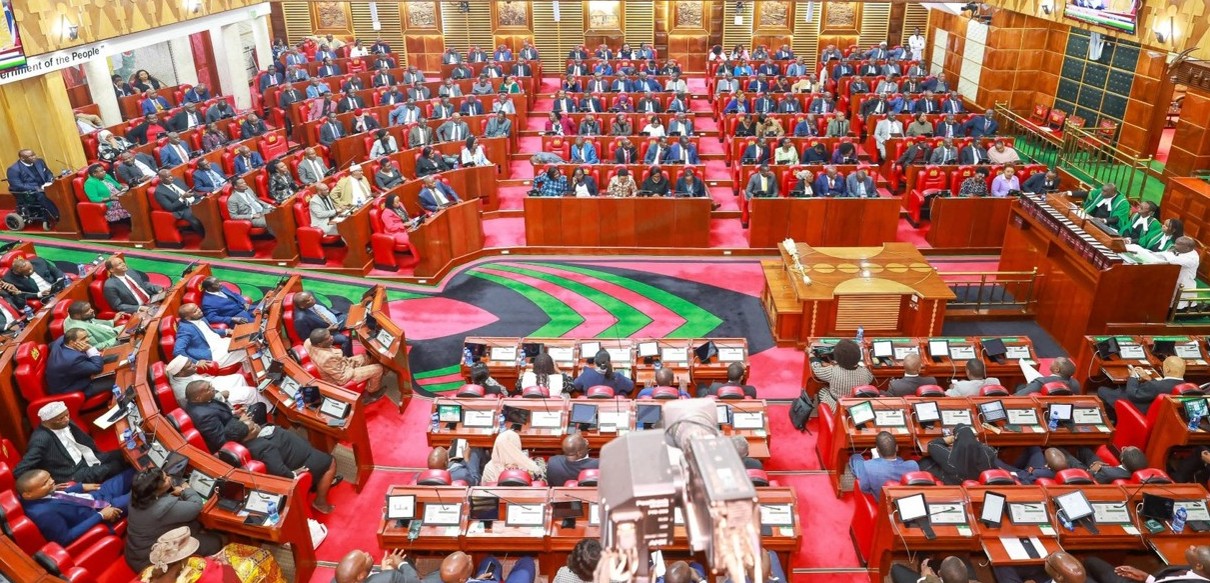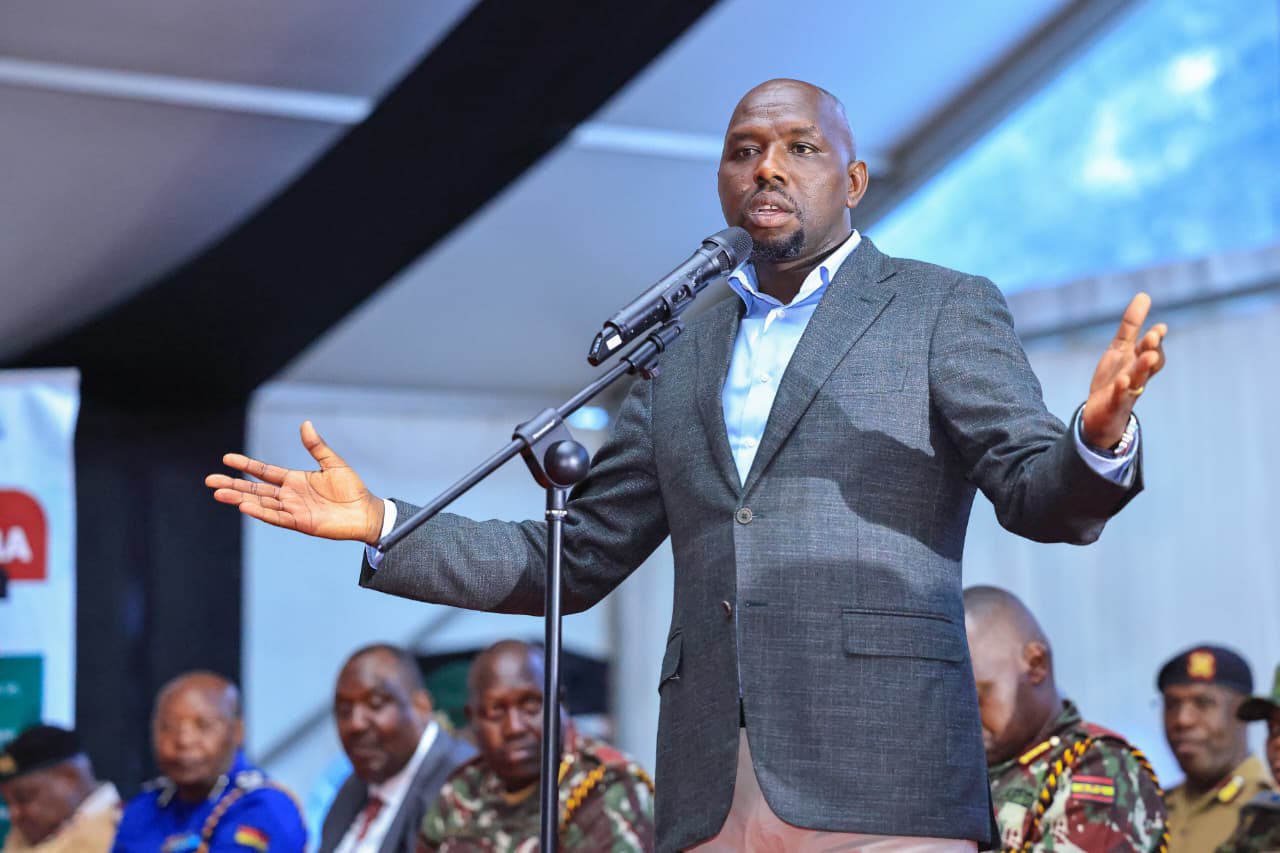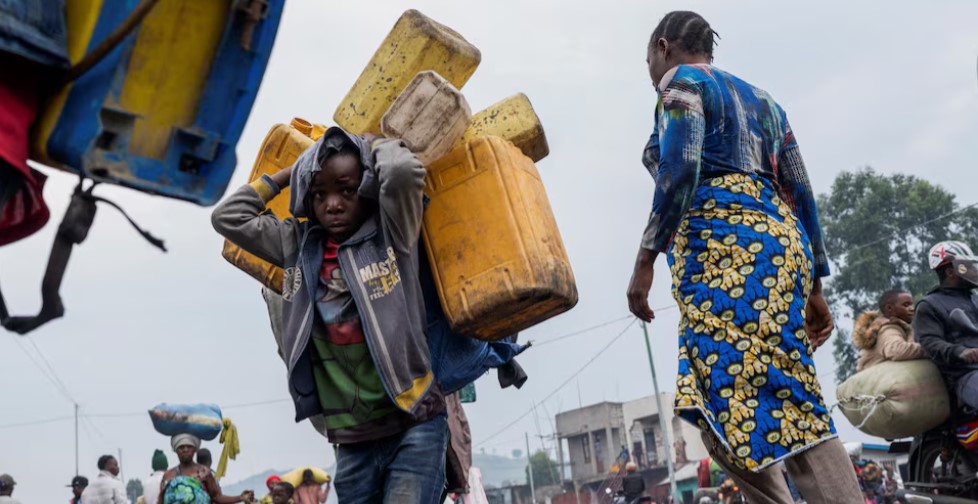President Ramaphosa signs major health bill just before South Africa election
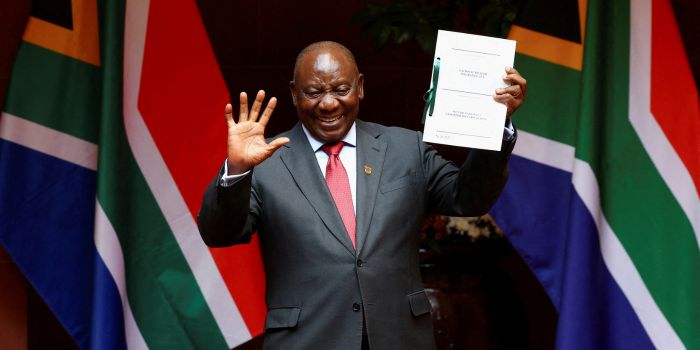
The legislation will gradually limit the role of private insurance, create a new public fund to provide free access for South African citizens.
South Africa's President Cyril Ramaphosa signed into law on Wednesday a bill that aims to provide universal health coverage, hailing it as a major step towards a more just society two weeks before an election that is expected to be fiercely competitive.
The National Health Insurance (NHI) Act takes aim at a two-tier health system, in which a publicly funded sector that serves 84 per cent of the population is overburdened and run down while some people have access to better treatment through private insurance.
More To Read
- South African President Cyril Ramaphosa places police minister on leave amid criminal allegations
- Ramaphosa slams White South African asylum seekers as ‘cowards’
- Frosty relations begin to melt as Ramaphosa, Trump hold first call
- South African President Ramaphosa wants to do a deal with Trump to resolve dispute
- Trump halts aid to South Africa over land reforms, Israel ICJ case, and Iran ties
- Kagame fires warning shot at Ramaphosa as tensions over DR Congo conflict escalate
Opponents have vowed to challenge it in court and described it as a ploy for votes, which the presidency denied, ahead of an election in which the governing African National Congress (ANC) is fighting to retain its parliamentary majority after 30 years in power.
The legislation will gradually limit the role of private insurance, create a new public fund to provide free access for South African citizens, and set the fees and prices that private doctors and healthcare suppliers can charge for NHI-funded benefits.
"The provision of healthcare in this country is fragmented, unsustainable and unacceptable," said Ramaphosa, framing the legislation as a solution to inequalities that date back to the apartheid era.
"For those who would like to see (their) privileges continuing, sorry, you are on the wrong boat. The boat we are on is about equality," he said at a signing ceremony at the Union Buildings, the seat of government in Pretoria.
Opponents say the plan will drain already stretched public finances, limit patient choice, undermine the quality of care and drive talented doctors out of the country.
Legal challenges
Industry and political analysts have said the legislation is likely to get bogged down in lawsuits for years, with the funding model the main aspect that is disputed.
The government has said the National Treasury will determine the funding sources for NHI, which will include a mandatory pre-payment system and other forms of taxes.
Big local health insurers like Discovery, Momentum Metropolitan Health and AfroCentric say they support the goal of universal health coverage but they do not agree on the proposed funding model.
"There is no funding plan yet and given the country's constrained fiscal position, low economic growth and narrow tax base, this can only be solved in the longer term," said Adrian Gore, group CEO of Discovery.
"We see no scenario in which there is sufficient funding for a workable and comprehensive NHI in its current form."
The NEHAWU labour union, part of the country's COSATU federation, which is in an alliance with the ANC, urged Ramaphosa and the Treasury to put their full political weight behind the NHI to ensure it is properly resourced.
But the chief whip of the Democratic Alliance (DA), the biggest opposition party, said the Act did not address systemic issues in the healthcare system.
"What this government has done is essentially try to put a band-aid over a gashing wound," the DA's Siviwe Gwarube said.
The legislation is good in principle, but will face big challenges due to South Africa's high unemployment rate, low tax base, and citizens' mistrust of government due to repeated corruption scandals, said Sivuyisiwe Wonci, a health policy researcher at the University of Johannesburg.
She estimated it would not be implemented for five to seven years but said signing it before the election was a strategic move.
"The African National Congress has a very big role to play in convincing the people that it cares about them. And healthcare,... it speaks to the hearts of the people."
Top Stories Today

